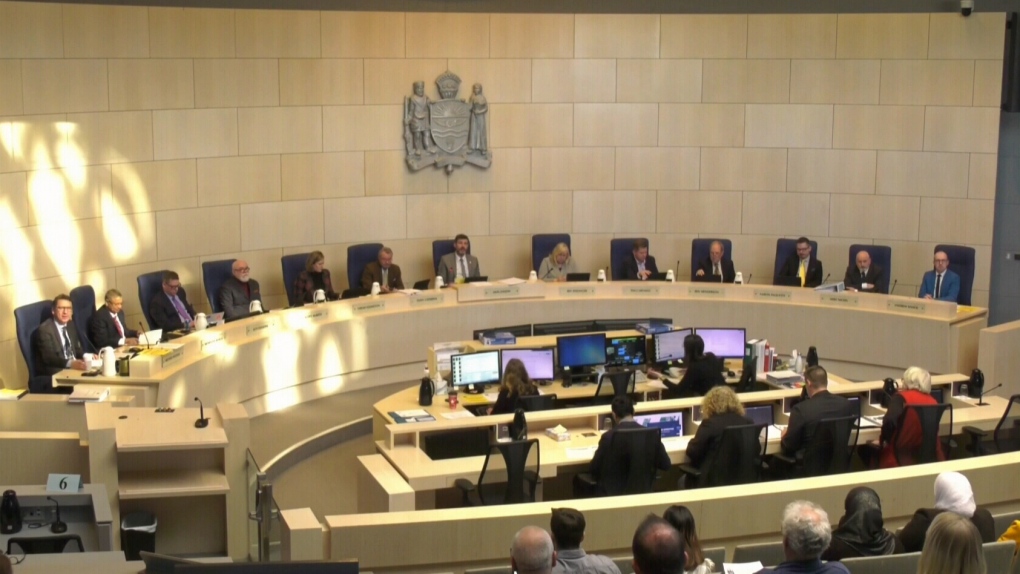
After a week of detailed debate, Edmonton city council decided on a 6.1-per-cent tax increase for 2025.
It translates to about an extra $200 per year for the average homeowner.
“Anything less than what we’ve arrived at would be absolutely fiscally irresponsible,” Ward Anirniq Coun. Erin Rutherford said last week.
Still, every councillor agrees the 6.1-per-cent hike is higher than they’d like to see.
And looking around the region, any pain of passing the increase might feel worse as many Alberta communities approved smaller increases than Edmonton.
Most municipalities close to Alberta’s capital city, such as Leduc and Strathcona County, kept theirs under four per cent.
Grande Prairie approved the smallest tax bump at just 2.3 per cent. Calgary’s city council managed a 3.6 per cent increase.
Nakota Isga Coun. Andrew Knack says inflation, population growth and provincial funding cuts have hit Edmonton’s budget hard in recent years, and other communities face those same pressures.
He says a series of low tax increases during the COVID-19 pandemic, including none in 2021, are catching up to Edmonton plus past decisions to spend big on projects such as recreation centres, roads and LRT.
“It’s not this council’s fault actually, and it’s not even last term of council’s fault, although we play a role in that,” Knack said. “This is really a decades-long issue.”
Three communities anticipate more tax pain than Edmonton next year: Stony Plain, Lethbridge and Red Deer.
The latter approved a 10.5-per-cent bump. It, too, kept taxes low during the pandemic.
“Zero, I think, was unsustainable,” Red Deer Mayor Ken Johnston told CTV News Edmonton. “At the time, it made sense, but that means you’ve got to dig into reserves.”
Comparing percentages may not tell the whole story, though, he said.
Johnston expects tax increases in his city to level off in coming years, but he takes issue with the exercise of comparing tax increases at all, suggesting each city or town has unique circumstances.
“It’s far too literal a comparator to look at ‘X’ per cent here, and ‘Y’ per cent there, and make some kind of definitive judgement,” he said.
With files from CTV News Edmonton’s Jeremy Thompson